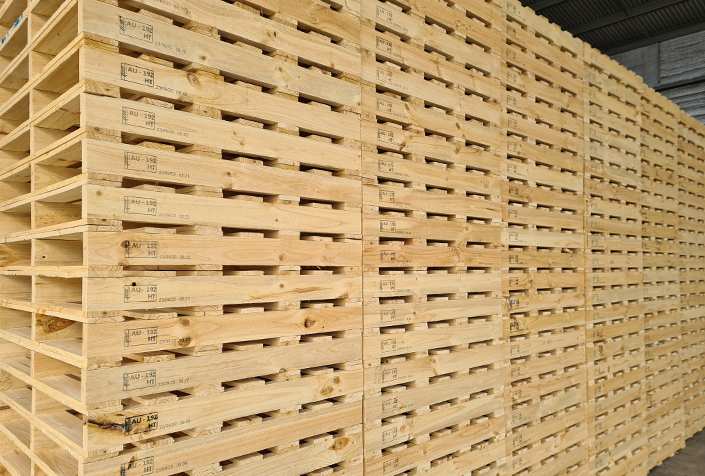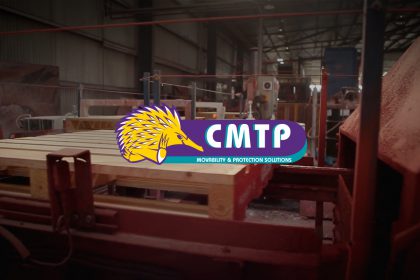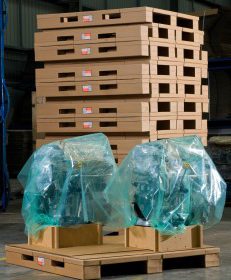When transporting products across long distances or storing them in warehouses exposed to temperature fluctuations, moisture damage becomes a real concern. From warped boxes and soggy packaging to the dreaded growth of mould and mildew, avoiding moisture is essential to product integrity and compliance.
That’s why many Australian businesses rely on kiln-dried pallets as a core part of their logistics strategy. These heat-treated wooden pallets are specifically engineered to stay dry, clean, and stable,making them a gold standard for industries dealing with food, pharmaceuticals, and export goods.
What Are Kiln-Dried Pallets?
These are wooden pallets made from timber that has been dried in a kiln, a controlled, high-temperature environment designed to reduce the wood’s moisture content to an optimal level (usually around 12–15%).
This is different from standard wooden pallets, which are often made from untreated or air-dried timber. Kiln drying not only stabilises the wood but also eliminates pests, mould spores, and fungi, making it a preferred option for export and hygienic applications.
Kiln-Dried vs. Heat-Treated vs. Untreated Pallets
| Feature | Kiln-Dried Pallets | Heat-Treated Only | Untreated Pallets |
| Moisture Control | Excellent | Moderate | Poor |
| ISPM-15 Compliant | Yes (if stamped) | Yes (if stamped) | No |
| Risk of Mould | Low | Moderate | High |
| Export Readiness | Yes | Yes | No |
| Weight Reduction | Yes | Slight | Heavy |
While heat-treated pallets meet ISPM-15 requirements, they may not be fully kiln-dried, meaning they can still carry residual moisture. Untreated pallets, on the other hand, should never be used for international shipping or high-compliance storage.
Industries That Depend on Kiln-Dried Pallets
Some industries simply can’t afford moisture-related risks:
- Food & Beverage: To meet health standards and avoid contamination.
- Pharmaceuticals: For sterile, compliant transport.
- Exporters: To comply with international quarantine regulations (including ISPM-15).
- Dairy & Agriculture: To prevent mould, rot, and breakdown during humid storage conditions.
Why Does Moisture Matter in Logistics?
Moisture leads to:
- Mould growth, which can cause product recalls or health issues
- Rust and corrosion in metal-packed products
- Warped packaging and unstable stacking
- Rejected shipments, especially in pharmaceutical and food sectors
By using these pallets, you reduce your exposure to all of the above while maintaining compliance with export regulations, particularly ISPM-15.
Key Benefits of Kiln-Dried Pallets
Here’s why many businesses choose these pallets over standard options:
1. Reduced Risk of Mould and Bacteria
Dry wood inhibits the growth of bacteria, fungi, and mould, making these pallets ideal for perishable or sensitive products.
2. Lower Shipping Weight
Moist wood is heavy. Kiln-dried wood is lighter, which can reduce freight costs, especially in bulk exports.
3. Greater Structural Integrity
Moisture leads to warping and cracking. These pallets are more dimensionally stable and less prone to breaking under load.
4. Compliant with ISPM-15
Kiln drying often overlaps with the requirements of ISPM-15 for exporting pallets internationally. Mostly these are already heat-treated and stamped, making them ready for customs.
When Should You Use Kiln-Dried Pallets?
Use them when:
- You’re exporting to countries with strict quarantine laws
- You’re shipping or storing products that are moisture-sensitive
- You need to reduce the chance of fungal or pest infestation
- You want to extend the life of pallets in humid warehouses or outdoor environments
Need timber pallets? Check out CMTP’s wooden pallet range
Who Should Be Using Kiln-Dried Pallets?
- Food processors: especially dairy, fresh produce, and meat
- Pharmaceutical companies: for GMP compliance
- Exporters: shipping products via sea or air
- Packaging contractors: working in remote or humid environments
- Retailers: wanting to maintain clean, safe presentation in stores
If your business handles high-risk inventory or operates in humid climates (like coastal Queensland or northern WA), such pallets are not optional—they’re essential.
Explore our Contract Packaging Services for custom, on-site logistics and compliance solutions.
CMTP’s Commitment to Compliance & Quality
At CMTP, we manufacture and supply kiln-dried wooden pallets that meet and exceed Australian and international standards. Here’s what you get:
- Locally sourced hardwood or pine timber
- ISPM-15 compliance and HT stamp
- Custom sizing available for odd or oversized loads
- Option to combine with wooden crates, bins, or contract packaging services
- Nationwide delivery from 8+ CMTP locations
With decades of experience serving industries like agriculture, retail, logistics, and government—we’re trusted by businesses across Australia.
Final Thoughts
Kiln-dried pallets may cost slightly more upfront, but they offer long-term savings in freight, product damage, and regulatory compliance. Whether you’re exporting pharmaceuticals or storing dairy crates, the added moisture protection is worth the investment. Need compliant, moisture-resistant pallets? Get a quote for kiln-dried pallets from CMTP today.


